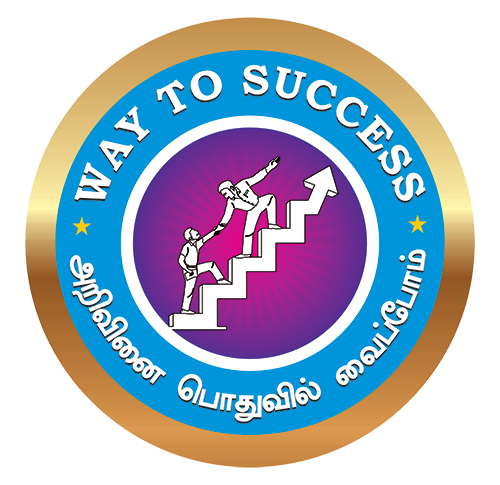Videos
| cruds.institution.fields.id |
|---|
Full View
Skills / திறமைA skill is an ability to perform an action with determined results, often within a given amount of time, energy, or both. The unique knowledge and intelligence required to do a job well are called Skills. Job skills prepare you for specific careers. Life skills prepare you for daily work. There are different types of skills that help you succeed in every aspect of your life, like school, office, and even sports or hobbies. Every career has specific, necessary, or desired knowledge, skills, and abilities essential for success at work. Skills can be initially divided into two parts. 1. General skills 2. Special skills General skills For example, some general skills are required in the workplace, including time management, teamwork, and leadership, self-motivation. Special SkillsAgain, special skills may be required for a particular job. For example, in the case of a graphic designer job, you must have computer graphics skills. Some have divided the skills into three parts. E.g. 1. Transferable skills / Functional skills 2. Personal Traits / Attitudes 3. Knowledge-based skills - Sowmiya Rengarajan |
Full View
Essential skills
There are eight essential skills that make a child/student successful,
The skills cover communication, creative problem-solving, self-management, and interpersonal skills. |
Full View
8 most important skills for current-age students1. Digital-age literacyWhen it comes to information, the sheer quantity thereof stored in one’s head, and the way it got there, are no longer all that important – what matters is what you do with it. This means that in order to become successful, students need to be able to analyze, access, manage, integrate, evaluate, and create information in different media, which implies information and media literacy. 2. CommunicationCommunication is the basis of any successful cooperation, but it needs to be bilateral and with sufficient feedback. In this era of communication, which is called that way for a reason, the forms, the channels, and the means of communication are ever more numerous. 3. CooperationUnlike the dawn of capitalism, where individuality used to play the main role in the social development and the success of an individual, modern society has surrendered its leadership position to teamwork. 4. CreativityFor creation, which is the highest level of learning, besides mastering other levels of knowledge, one, of course, needs to have a healthy dose of creativity. Creativity means discovering new connections, relations, and possibilities of matching already familiar elements, in order to create something new. 5. Inventive thinking – intellectual capitalThis means that not only should students have a well-developed imagination and critical-thinking skills, but they should also be able to assess the circumstances in which the idea in question occurred and the possibilities regarding its realization, as well as possess the ability to adjust in the best possible way. 6. Problem-based thinking and problem-solvingProblem-based thinking is considered the most complex of all intellectual functions. It starts from the assumption that knowledge is not adopted for the sake of mere learning and getting good grades, but that said knowledge needs to be “put to work”, and applied to solving concrete tasks, situations, or problems. 7. Value system and responsibilityEducation never is, nor should it ever be, an independent process – it always goes hand in hand with upbringing. One of the most important functions of schools is “shaping” fine, well-mannered young people, whom it will help develop a proper value system and enable them to grow into persons of integrity. 8. Quality, top results, and productivityStudies have shown that good test results are unrelated to later productivity in life. Although schools do not insist much on productivity, it is directly related to good results, success, and progress in every sense. |
Full View
Life SkillsThe World Health Organization has defined life skills as, "the abilities for adaptive and positive behavior that enable individuals to deal effectively with the demands and challenges of everyday life". UNICEF defines life skills as “a behaviour changes or behaviour development approach designed to address a balance of three areas: knowledge, attitude and skills”. The UNICEF definition is based on research evidence that suggests that shifts in risky behaviour are unlikely if knowledge, attitudinal and skills-based competency are not addressed The World Health Organisation (WHO) categorizes life skills into the following three components:
|
| Recent Question Papers & Keys |
|---|


